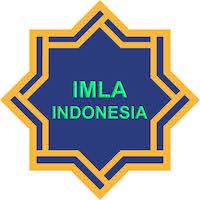Analaysis of Students Need To Develop A Speaking Skill Textbook Based On A Communicative Approach/ احتياجات الطلاب إلى تطوير الكتاب المدرسي لمهارة الكلام المستند إلى المنهج الاتصالي
DOI:
https://doi.org/10.18592/jams.v9i1.5168Keywords:
احتياجات الطلاب, تطوير الكتاب المدرسي, مهارة الكلامAbstract
تهدف هذه الدراسة إلى وصف احتياجات الطلاب إلى تطوير الكتاب المدرسي لمهارة الكلام المستند إلى المنهج الاتصالي. يستخدم البحث منهج التطوير مع الخطوات التالية: مراجعة الأدبيات والملاحظات الميدانية ودراسات الوثائق والاستبانة. تم تحليل البيانات التي تم الحصول عليها لتصبح المادة الرئيسية في تصميم المواد التعليمية. تظهر نتائج الدراسة أنه أولاً، يتم توجيه المواد التعليمية إلى: مساعدة الطلاب على أن يكونوا قادرين على التواصل شفهيًا باستخدام اللغة العربية بأسلوب توجيهي تواصلي. الموضوعان والعبارات التي يحتاجها الطلاب في المحادثة اليومية باللغة العربية هي: التحية والتعارف، الأسرة، السكن، الحياة اليومية، الطعام والشراب، الصلاة، الدراسة، العمل، التسوق، الجو، المجتمع والأماكن، السفر، العطلة، الحج والعمرة. أما العبارات العربية التي يحتاجها الطلاب هي كالتالي: الأخطاء الشائعة التي يتكلم بها الناطقون باللغة العربية، التحية، التحية، التعارف، العروض وطرق الشكر، التهنئة، الثناء، التعبير عن مشاعر السرور والحزن، الطلب، الاعتذار والاستفسار، الاستئذان، إبداء النصح، الموافقة، الرفض والتعبير عن الغضب، الإقرار، الحلف والاستبداع، الشكوك والاستغراب، نقل التحية والدعوات، دعاء النجاح والعبارات للمرضى، عبارات التعزية، التسليم والترحيب، الأدعية العامة، كيف نعبر باللغة العربية بتعبير أفضل.References
Ahmed, Khawlah. "The Arabic Language: Challenges in the Modern World," International Journal for Cross-Disciplinary Subjects in Education (IJCDSE), Vol. 1, No. 3, 2010.
Erlina, Erlina. "Inovasi Pembelajaran Melalui Penelitian Dan Pengembangan Bahan Ajar," Jurnal Al Bayan: Jurnal Jurusan Pendidikan Bahasa Arab, Vol. 8, No. 1, 2016.
Fatchurrozaq, Irsyad Kholis. "Pengembangan Bahan Ajar Modul Bahasa Arab Berperspektif Gender Bagi Siswa Kelas VII Madrasah Tsanawiyah.” El-Wasathiya: Jurnal Studi Agama, Vol. 6, No. 2, 2018.
Hamid, M. Abdul, & Fajeri, Moh. “Pengembangan Bahan Ajar Keterampilan Berbicara Bahasa Arab Berbasis Pendekatan Komunikatif Interaktif Di Pondok Pesantren Mambaus Sholihin Blitar,” 2016.
Idawati, Idawati. & Rauhillah, Siti. "Pengembangan Multimedia Interaktif Pada Matakuliah Bahasa Arab Maharah Kalam Berbasis Budaya Lokal di Prodi PBA Fakultas Tarbiyah IAIH Pancor," Ta’dib: Jurnal Pendidikan Islam dan Isu-Isu Sosial, Vol. 15, No. 1, 2017.
Mubarak, Faisal. “The Innovation of Multimedia-Based Arabic Language Learning.” Turkish Journal of Computer and Mathematics Education, Vol. 12, No. 14, 2021.
Mujab, Ahmad Saiful, Irawati, Retno Purnama. & Rahmawati, Nailur. “Pengembangan Modul Bahasa Arab Berbasis Teori Psikologi Perkembangan Remaja Elizabeth B. Hurlock Kelas X MA.” Lisanul Arab: Journal of Arabic Learning and Teaching, Vol. 7, No. 1, 2018.
Muta’aliyah, Siti Alfi Sayidatul. “تطوير كتاب تعليم مهارة الكلام على أساس مدخل التعليم والتعلم السياقي في المستوى المتقدم بمعهد جامعة مولانا مالك إبراهيم الإسلامية الحكومية مالانج.” Doctoral Dissertation, Universitas Islam Negeri Maulana Malik Ibrahim, 2017.
Pebrian, Rojja. “TASHMIM AN NAMUDZAJ LI TA’LIM AL LUGHAH AL’ARABIYAH AL ITTISHALIYAH.” Ijaz Arabi Journal of Arabic Learning, Vol. 1, No. 2, 2018.
Pebrian, Rojja. Yunita, Yenni. Akzam, Ismail. & Nasir, Gamal Abdul. "Efektifitas Penggunaan Direct Method Dalam Pengajaran Bahasa Arab Di Fakultas Ilmu Komunikasi Universitas Islam Riau," EL-IBTIKAR: Jurnal Pendidikan Bahasa Arab, Vol. 9, No. 1, 2020.
Samin, Saproni Muhammad. “Bahan Ajar Matrikulasi Pendidikan Bahasa Arab,” Al-Hikmah: Jurnal Agama dan Ilmu Pengetahuan, Vol. 17, No. 1, 2020.
Saproni, Saproni, Rojja Pebrian, and Alfitri Zulkifli. “Heutagogy Approaches for Arabic Learning in Higher Education in Industrial Revolution 4.0,” 2019.
Downloads
Published
Issue
Section
License
Authors who publish with this journal agree to the following terms:
- Authors retain copyright and grant the journal right of first publication with the work simultaneously licensed under a Creative Commons Attribution License that allows others to share the work with an acknowledgement of the work's authorship and initial publication in this journal.
- Authors are able to enter into separate, additional contractual arrangements for the non-exclusive distribution of the journal's published version of the work (e.g., post it to an institutional repository or publish it in a book), with an acknowledgement of its initial publication in this journal.
- Authors are permitted and encouraged to post their work online (e.g., in institutional repositories or on their website) after the submission process, as it can lead to productive exchanges, as well as earlier and greater citation of published work.






